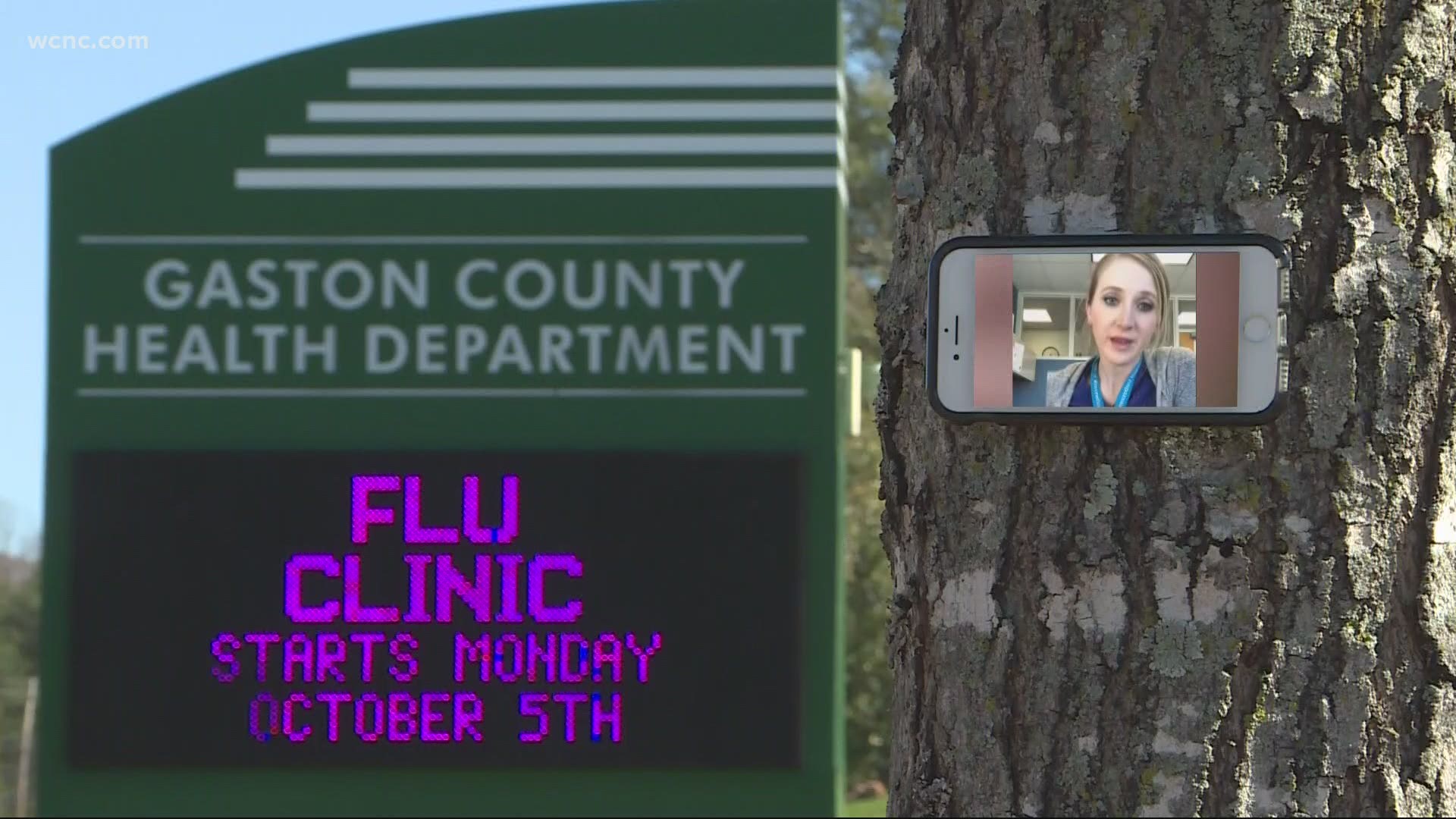GASTONIA, N.C. — Contact tracers with Gaston County's Department of Health and Human Services continue to face multiple challenges, ranging from hostile people to residents not returning their calls, as the county experiences an alarming level of COVID-19 community spread.
Contact tracing is critical to finding out where COVID-19 is spreading and stopping it, and North Carolina DHHS said it's an important component for Gaston County to leave the "red level" in the state's new COVID-19 alert system.
According to county numbers, contact tracers get in touch with an estimated four out of five people who tested positive for COVID-19.
But Ellen Wright, a communicable disease nurse and contact tracer for the county, said the challenges come when she tries to get in touch with a positive resident's close contacts.
"There's a good amount that we're not able to get in contact with," Wright said. "There's a lot of mistrust with the government, but we're just here to help."
Gaston County's contact tracing response rate is 49%. Adam Gaub, a spokesman for the county, said it's a problem counties and cities across the country are facing. Wright said when she's able to get through and talk to people, they're mostly receptive.
"For the most part, people are nice," Wright said. "We have had those hostile people. Some people that just don't believe in it [or] don't think it's real."
But Wright understands the realness of the virus better than most because her husband, Richard, was diagnosed with COVID-19 several weeks ago.
A healthcare worker in Charlotte, Richard Wright ultimately spent a week in the hospital, including time in an intensive care unit.
"I was, for the most part, pretty healthy, pretty active, and it still pretty much knocked me off my feet," he said. "This is definitely something I don't think any of us expected."
He said COVID-19 often consumes his wife's work.
Ii just try to change the mood and try to go out for take-out, movies," Richard Wright said. "Anything we can do to take some of that ease off of having such a stressful experience at work."
Ellen Wright said her DHHS managers were proactive in helping contact tracers relieve their stress by encouraging them to take time off or shift to other tasks, including tracking other communicable diseases.
She urged people to help contact tracers by picking up the phone, being receptive and providing as much information on close contacts as they can.
She said, "I just want people to know that it's real and to take it seriously."

